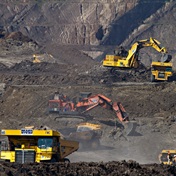
One of my aspirations when I was in high school was to bring the Olympic Games to Cape Town. Imagine a brand new athletics stadium and athletes’ village at Ysterplaat.
Athlone Stadium could play host to sevens rugby, while Cape Town Stadium would host all football games. Bellville velodrome would play host to cycling, Camps Bay beach volleyball, the Waterfront sailing, and Langa could get a brand new boxing venue that could serve the community long after the Olympics are gone.
The sports stadiums would, of course, be just one element of a much bigger infrastructure drive. The largest innovation will be in transportation: a new airport, built on the N7 to Malmesbury, would allow Cape Town to increase international arrivals from 2m to 10m.
A new CapeRocket mass rapid rail network would connect the new airport with the city and neighbouring towns like Paarl, perhaps even Worcester, through the Huguenot Tunnel.
If a train could take you from Worcester to the Cape Town city centre in less than an hour, imagine what that would do to the daily commute from – and property prices in – rural areas! (“That is radical economic transformation,” I can hear Cape politicians say.)
In moments of weakness, these dreams return. But then reality kicks in, informed by years of research on the impact of megaevents. The picture is not a positive one.
In short, the Olympic Games are an expensive undertaking that rarely delivers on the promises of spectacular economic growth.
Robert Baade and Victor Matheson, two experts in the field, summarise it best: “In most cases the Olympics are a money-losing proposition for host cities; they result in positive net benefits only under very specific and unusual circumstances.”
There are exceptions, of course. Los Angeles in 1984 was a financial success for two reasons: it built very few new stadiums, and the costs that were incurred were mostly funded by the private sector. Barcelona in 1992, too, is considered a success, uplifting a city to global tourism status to the extent that Catalonians are now trying to curb tourism.
But these are the exceptions that prove the rule. Most cities that host the Summer Olympics continue paying for the event long after the closing ceremony. Montreal hosted the 1976 Olympics; Canadians finally repaid all of the debt in 2006, 30 years later.
In a paper I co-wrote with Maria Santana-Gallego in 2011, we found that mega-events like the Olympics boost a host country’s tourism by about 7%. This varies depending on whether the event was held during the off-season (like the 2010 World Cup in South Africa), the type of event (the Olympics is held within one city, the Soccer World Cup in several cities) and even who participates in the event.
Even if tourism increases substantially, as it did for SA before, during and after the 2010 World Cup, these advantages can easily be undone. In a back-of-theenvelope calculation, I have shown that all the tourism benefits SA derived from hosting the World Cup were undone by our ridiculous visa rules in 2015, a classic case of the negative unintended consequences of good intentions without sound analysis.
Despite the evidence against mega-events, cities and countries still line up to bid for them. It seems like an irrational thing to do, but there are very rational reasons cities and countries do so. These reasons are mostly political. The politician who hosts the event will often not be the one who pays for it.
There is an immense feel-good factor associated with hosting mega-events. And voters often vote for politicians not based on calculated policy statements, but on how they make them feel. A second reason is that cities can use a mega-event to get a larger share of the national budget.
SA wants to host the 2023 Rugby World Cup. There are reasons for and against doing this. On the positive side, no new large infrastructure will be required. The event will also be held during the tourism ‘off-season’, meaning that rugby supporters would likely not displace other tourists.
Its bid document projects an economic impact of R27bn, while a total of 39 000 temporary and permanent jobs is expected to be created. Sounds like a no-brainer.
But it’s not that simple; there are few things in life that are certain, but that these numbers are inflated is one of them. Cabinet has already approved a guarantee of R2.7bn that was required by World Rugby. The event will require public resources in an era when budgets are already under considerable stress.
On the tourist side, SA has strong existing links with rugby-playing countries; tourism is therefore unlikely to see much of an increase before and after the event. And the feel-good benefit is limited if your team doesn’t win the finals; as a thought experiment, would 1995 have had such treasured memories were it not for Joel Stransky’s final drop goal?
Despite my childhood dreams, we were fortunate to escape the 2004 Cape Town Olympic bid, and even more fortunate to escape Durban’s Commonwealth Games disaster of 2022. Mega-events are expensive parties, with inflated benefits and underestimated costs. Think carefully before the games begin!
Johan Fourie is associate professor in economics at Stellenbosch University.
This article originally appeared in the 19 October edition of finweek. Buy and download the magazine here.




 Publications
Publications
 Partners
Partners











